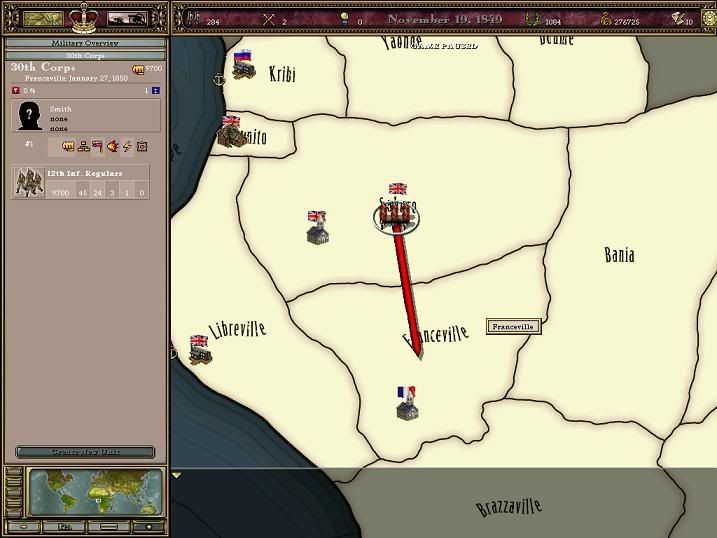I agree. You need a period of recuperation, and then I think you should pursue a policy against sulpher and silk, taking what cotton opportunity offers. Sulpher as the priority, I think, as that will be directly impair the efforts of your ... competitors to resist you in the future. Silk as secondary as clerks effect research in the later stages, and that is another useful area to impair your opponents, by preventing them from increasing their research potential as much.
Wars for those two should, I would hope, net you some cotton provinces anyway as a side-effect. Then it is a matter of clearing up.
Wars for those two should, I would hope, net you some cotton provinces anyway as a side-effect. Then it is a matter of clearing up.


